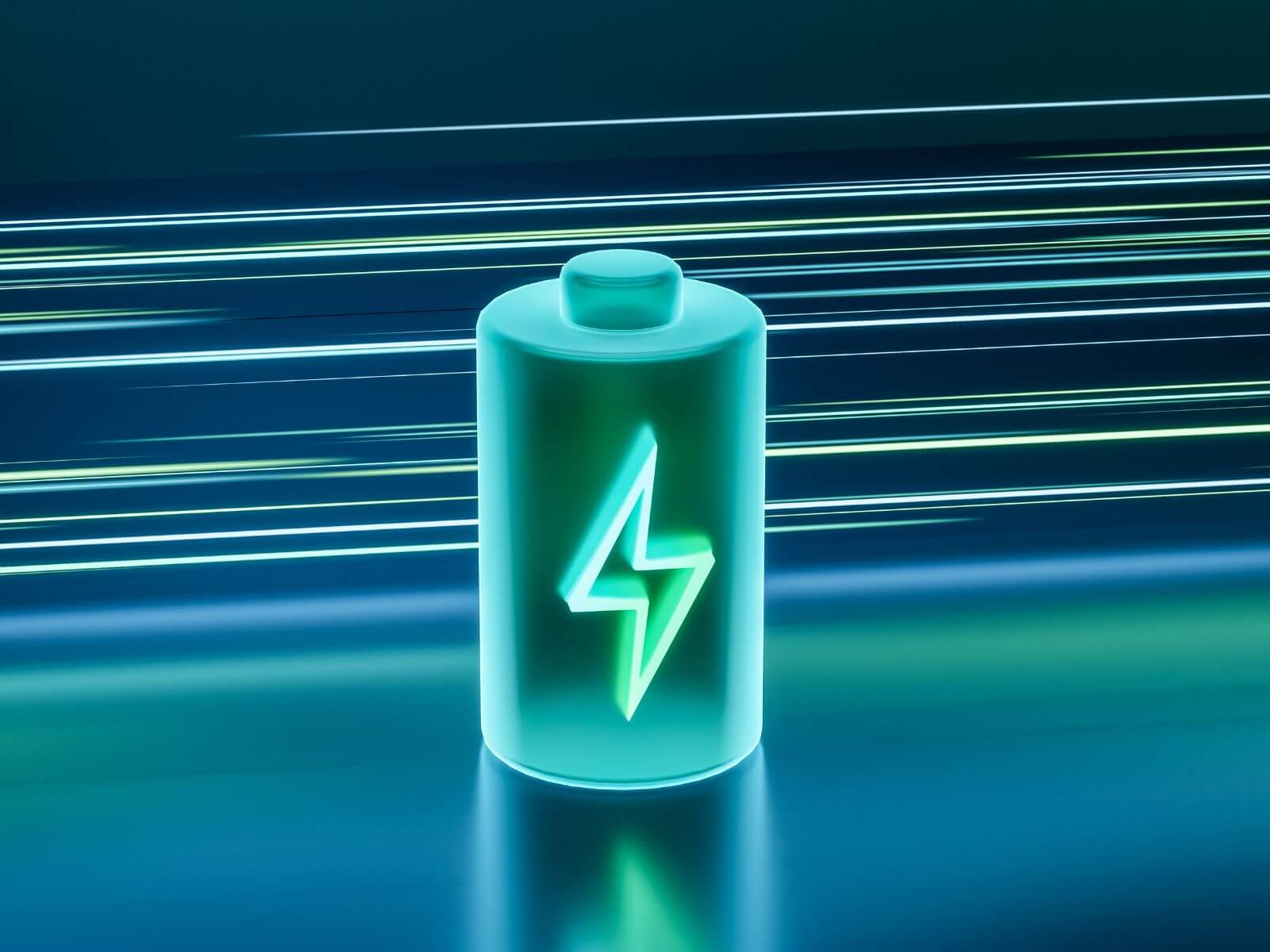
Learn how to use your excess solar energy and keep the solar power going day or night and rain or shine with solar battery storage.
Imagine this — Your solar panels are running at their optimal efficiency. They are powering your home when the sun is shining, allowing you to avoid using the electrical grid. Suddenly a storm rolls in and the clouds block the sun.
While your panels can still collect sunlight and retain old protons from before the cloud cover, they won’t be as strong as before.
If you want to have a 100%-solar home or business, then you need backup batteries.
Find out how solar battery storage works and how it is a necessary addition to your solar unit below.
Solar Energy Storage Timeline
While the concept of storing solar energy dates as far back as 1954, it wasn’t until recent technology advancements that made battery storage affordable and efficient.
For example, lithium-ion battery prices dropped drastically over the last decade and a half, making them available for an individual solar energy storage system.
How Energy is Stored in the Battery
A solar panel with storage functions by capturing the excess generated energy during periods of peak sunlight. This energy can then be stored for later use.
The process involves several key components, including photovoltaic (PV) panels, charge controllers, inverters, and the battery itself. When sunlight strikes the solar panels, it generates direct current (DC) electricity, which is then converted into alternating current (AC) by the inverter for use in the home. Any surplus energy is directed towards charging the battery, where the current is contained.
Types and Different Characteristics of Batteries
Solar batteries come in various types, each with its own set of characteristics that determine capacity, efficiency, and lifespan. Among the most common types are:
- Lithium-Ion Batteries: Known for their high-energy density and long cycle life, lithium-ion batteries offer excellent performance and reliability. They boast higher efficiency and faster charging times compared to other battery chemistries, making them a popular choice for solar storage applications.
- Lead-Acid Batteries: Although they have been largely surpassed by lithium-ion batteries, lead-acid batteries remain an economical option for solar energy storage. While they may have lower upfront costs, lead-acid batteries tend to have shorter lifespans and lower energy densities than lithium-ion alternatives.
- Flow Batteries: Flow batteries utilize liquid electrolytes stored in external tanks, offering scalability and flexibility in terms of capacity. While they may have lower energy densities than lithium-ion batteries, flow batteries excel in applications requiring long-duration energy storage.
Most solar battery storage systems use lithium-ion batteries for cost-efficiency and scalability because they offer more energy capacity and faster charging times.
Can You Save Money with a Battery Storage Unit?
The potential for cost savings with a battery storage unit depends on individual circumstances, including energy consumption patterns, utility rates, and available incentives.
In regions with excessive overcasts days, solar battery storage can help reduce reliance on electricity, lowering your utility bills. It also allows homeowners to store excess energy that can be sold back to the grid as Solar Renewable Credits or used for net-metering.
In addition, government solar incentives and rebates may offset the initial investment of a battery storage system and even offer tax credits for batteries connected to qualifying solar units.
The Benefits of Having a Battery Storage
The integration of a battery storage system offers a myriad of benefits for homeowners seeking to maximize the value of their solar investment:
- Energy Independence: By storing excess solar energy for use during periods of low sunlight or grid outages, battery storage provides homeowners with greater energy independence and resilience.
- Peak Load Shifting: Battery storage allows homeowners to shift energy consumption away from peak hours, reducing reliance on grid-supplied electricity during times of high demand when utility rates are typically highest.
- Environmental Impact: By reducing dependence on fossil fuels and grid-supplied electricity, solar battery storage contributes to a cleaner and more sustainable energy future.
- Grid Support: In addition to benefiting individual homeowners, solar battery storage systems can also provide grid support by alleviating strain during peak demand periods and enhancing grid stability and reliability by selling excess energy.
The best part about having a solar battery backup is that you never have to worry about blackouts and power-downtimes.
Can a Battery Storage Supply Your Home with 100% Solar Energy?
Solar battery storage systems can significantly reduce reliance on grid-supplied electricity, achieving 100% solar energy independence.
To achieve this requires careful planning and consideration. You need to calculate your energy consumption needs and understand the energy output of your solar unit.
Luckily, the professionals at Rising Sun Solar Solutions helps you design a solar unit and battery storage system specifically for your home or business.
By having the right amount of solar panels and battery capacity, you will never let energy go to waste or be without power while removing your dependency on electrical utility companies.
Adding a Solar Battery Storage Unit
Whether you have gone solar yet or not, it is easy to add a solar battery storage unit to your current or future system.
Batteries connect directly to your inverter and central solar controller and can be added at any point during installation.
Get started by speaking with an expert at Rising Sun Solar Solutions today about your energy needs.
